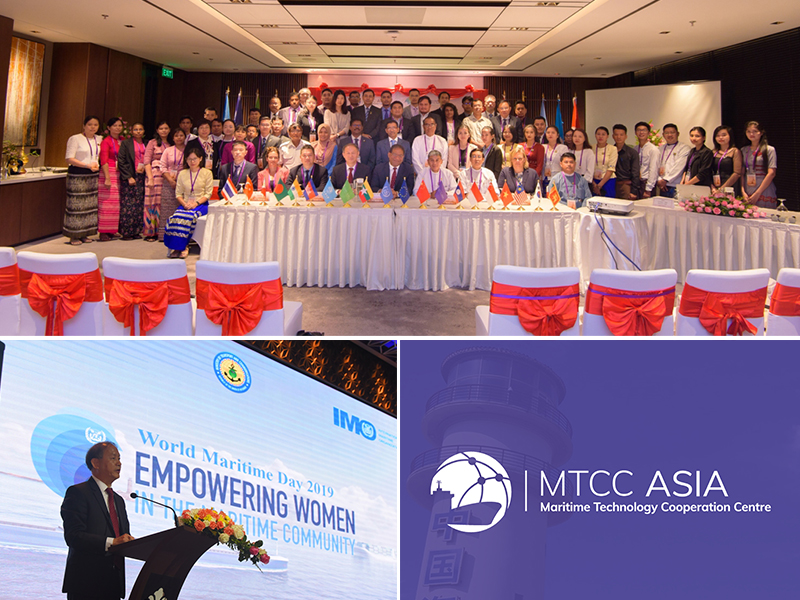Fifteen demonstration ships in the Asia region have, to date, provided 68,517 sets of data relating to ship fuel consumption and ship optimum trim. It is this kind of data-gathering and analysis that is helping the regional Maritime Technology Cooperation Centre (MTCC-Asia) deliver on its commitment to promote innovative technologies and operations to improve energy efficiency in the maritime sector. MTCC-Asia - one of the centres in the IMO-led, European-Union funded Global MTCC Network (GMN) project - held its Second Regional Workshop in Yangon, Myanmar (30 September-2 October).
The data gathering project (which took data from five container ships, five bulk carriers and five oil tankers) was just one aspect of MTCC-Asia's work presented during the workshop. Collecting ship fuel consumption data has helped prepare ships in the region for the mandatory data collection required by IMO - and can help inform a ship master's decision-making to improve energy efficiency on board. Ship trim optimization advocates selecting the trim condition for reduced resistance. Less resistance implies fewer emissions and more economical operation by fuel savings. The ship trim relates to the floating position in length – whether the bow or aft of a ship is deeper in the water.
Around 70 participants from 14 countries in the Asian region attended the workshop, including maritime and energy efficiency specialists. They shared presentations and discussed the centre's progress in delivering technology innovation, capacity building, regional outreach, exchange and communications. Sharing knowledge and best practices were highlighted as crucial ways to help improve energy efficiency in the maritime sector. The workshop concluded by acknowledging the importance of the MTCC global network, ahead of the 3rd GMN International conference, which brings together all five MTCCS and meets 7-11 October in Malmö, Sweden.
The Myanmar workshop was organized by MTCC-Asia, funded by the European Union and implemented by the International Maritime Organization, Shanghai Maritime University, Ministry of Transport of China, and Department of Marine Administration of Myanmar.
